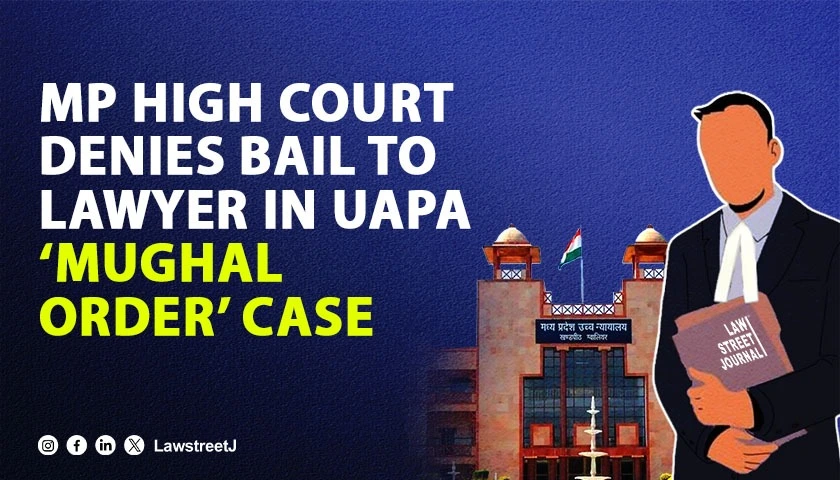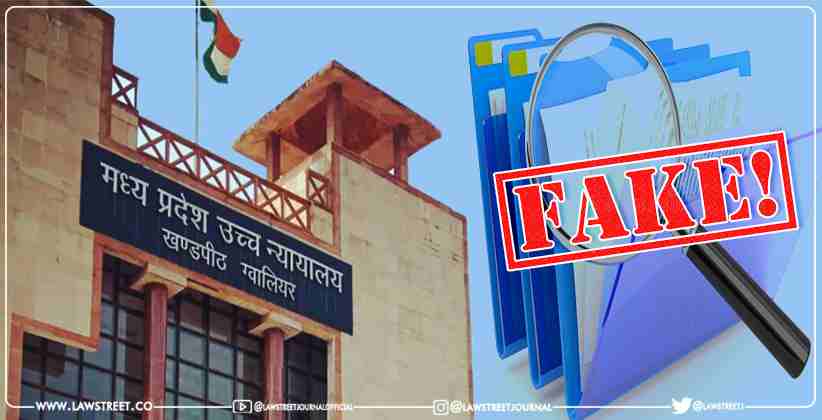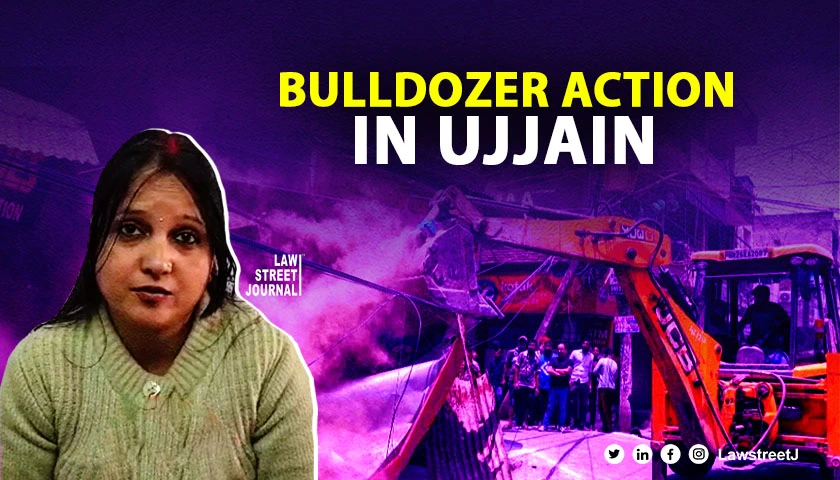Madhya Pradesh: The Madhya Pradesh High Court has refused to grant bail to a lawyer charged under the Unlawful Activities (Prevention) Act, 1967, after finding prima facie evidence of attempts to disrupt communal harmony with the alleged objective of establishing a ‘Mughal Order’ akin to the pre-British era.
A division bench of Justice Vivek Agarwal and Justice Devnarayan Mishra addressed an appeal filed under Section 21 of the National Investigation Agency Act, 2008, challenging the order dated February 8, 2025. The appellant has been charged under Sections 121-A, 153-A, 120-B, and 201 of the Indian Penal Code, read with Sections 13(1)(b), 18, 18-A, and 18-B of the Unlawful Activities (Prevention) Act, 1967.
Addressing the prosecution’s case, the court noted, “As per the allegations, the prosecution’s case is that the appellant is part of a Human Rights Organization and extends legal assistance in his capacity. He has also participated in the organization’s membership classes and is working to promote its agenda.”
The appellant’s counsel, Mohd. Tahir, argued that his client is an enrolled advocate working as a volunteer with a Human Rights Organization conducting legal awareness programs. He contended, “He has not committed any act that falls within the definition of unlawful activities under Section 2(o) of the Act of 1967, nor is he a member of an unlawful association as defined under Section 2(p) of the Act of 1967.”
However, examining the seizure evidence, the court observed, “We have gone through the seizure memo, which reveals that incriminating materials such as books, CDs, a computer, pen drives, bank account details, pamphlets, certain lectures, and written materials were seized from the appellant’s house/office.”
The court made a significant finding regarding the alleged activities, stating, “Prima facie, it appears that an attempt is being made to disrupt communal harmony among members of society, with the objective of establishing a Mughal Order as it existed prior to the British takeover from the Mughals before India’s independence.”
Citing Supreme Court precedent, the court referenced Union of India vs. Barkatulla, noting, “National security is always of paramount importance, and any act aiding a terrorist act — violent or non-violent — is liable to be restricted. The UAPA is one such Act, enacted to provide for the effective prevention of certain unlawful activities by individuals and associations.”
The court emphasized the balance between civil liberties and national security, observing, “This Court has often interpreted counter-terrorism enactments to strike a balance between the civil liberties of the accused, the human rights of the victims, and the compelling interest of the state.”
Refusing to grant bail, the court stated, “Upon examining the material, we are of the opinion that it is for the trial court to decide, based on the evidence, whether the charges framed can be proven or not.”
The court concluded, “We feel that, at present, the application for grant of bail does not appear to be mature. The judgments cited by learned counsel for the appellant are distinguishable on their own facts.”
The court dismissed the criminal appeal while clarifying that any observations made would not affect the fair trial of the case.
Mr. Mohd. Tahir, Advocate, appeared for the appellant, while Mr. Bramhadatt Singh, Special Public Prosecutor, represented the State of Madhya Pradesh.
Case Title: Wasid Khan vs. The State of Madhya Pradesh




.jpeg)

![Supporting defamatory WhatsApp posts doesn’t constitute involvement in offence of defamation: MP HC [Read Order]](/secure/uploads/2024/09/lj_6675_WhatsApp_Image_2024-09-16_at_12.24.54_PM.webp)




